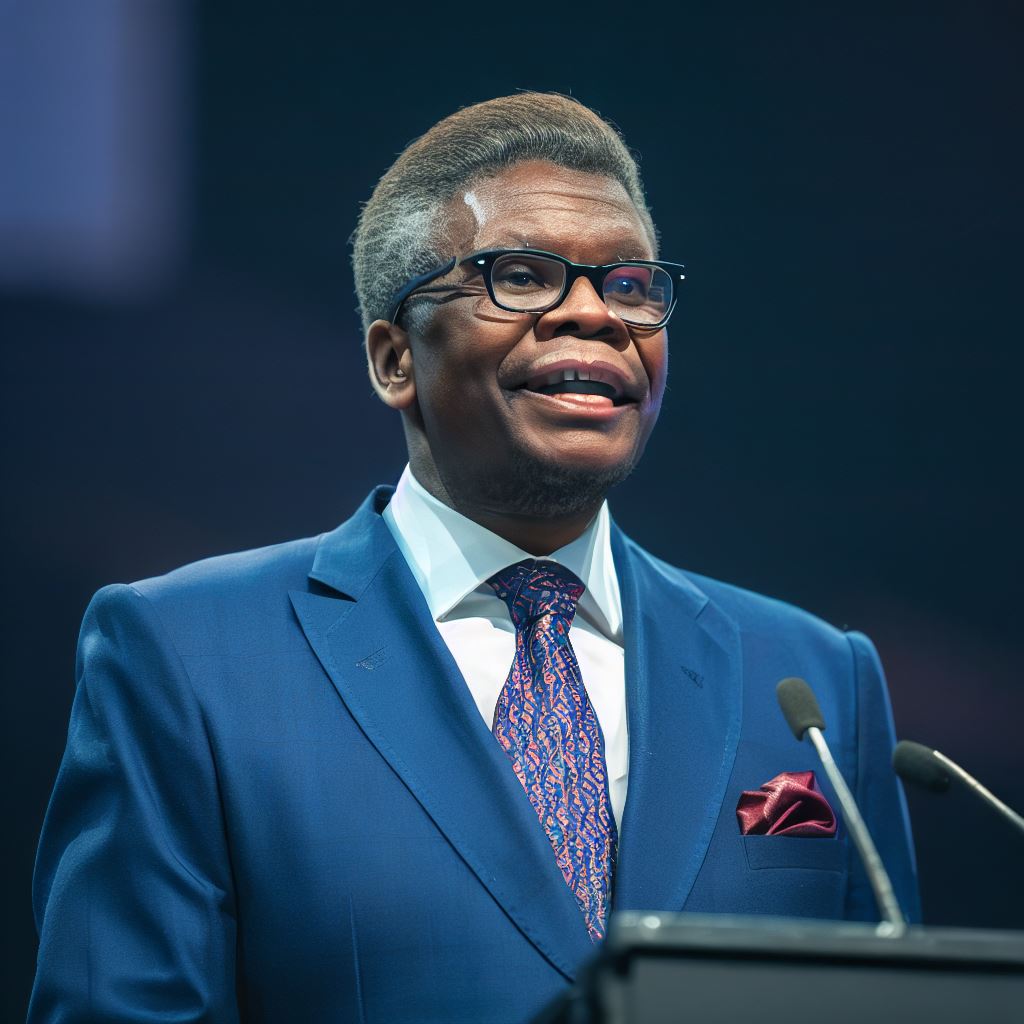Introduction
How Pastors Find the Right Church: Finding the right church is crucial for individuals seeking spiritual growth and a sense of belonging.
Pastors play a vital role in guiding their congregation towards the right church experience.
This guide provides pastors in Nigeria with essential tips to assist their congregation in finding the right church.
Understanding the Needs and Demographics
A. Analyzing the local community
- Conduct thorough research on the local community to understand its demographics and characteristics.
- Study the population size, age groups, economic status, and social dynamics of the community.
- Identify the common challenges and issues faced by the people living in the area.
- Consider factors such as education levels, employment opportunities, and healthcare facilities available.
B. Identifying the target audience
- Determine the specific group of people your church wants to reach out to and serve.
- Consider factors such as age, gender, cultural background, and social interests.
- Assess the needs and preferences of the target audience to tailor your church’s message and programs accordingly.
- Use surveys or interviews to gather data and insights from the community members directly.
C. Considering cultural and religious diversity in Nigeria
- Acknowledge and embrace the cultural and religious diversity within Nigeria.
- Respect the beliefs, practices, and traditions of different ethnic groups and religious communities.
- Offer a welcoming and inclusive environment that accommodates people from various backgrounds.
- Provide opportunities for interfaith dialogue and activities that promote understanding and harmony.
- Organize cultural events or celebrations that reflect the diversity of the community.
- Collaborate with local community leaders and organizations to foster unity and mutual respect.
- Offer resources and support for individuals facing religious discrimination or persecution.
Finding the right church in Nigeria requires pastors to deeply understand the needs and demographics of the local community.
By analyzing the community, identifying the target audience, and considering cultural and religious diversity, pastors can effectively connect with people and create an inclusive and welcoming church environment.
Read: Challenges and Triumphs: A Pastor’s Life in Modern Nigeria
Defining Your Church’s Mission and Values
A. Identifying the core beliefs and doctrines
- Conduct a thorough study of the Bible’s teachings to understand the core beliefs and doctrines of Christianity.
- Consult with fellow pastors, members of your congregation, and theological experts for their insights.
- Make a list of the essential tenets that your church will uphold, ensuring they align with biblical teachings.
- Communicate these beliefs and doctrines clearly to your congregation to establish a strong foundation.
B. Determining the purpose and vision
- Reflect on the reason your church exists and what it seeks to achieve in the community.
- Define the purpose of your church, considering aspects such as worship, discipleship, evangelism, and service.
- Develop a clear vision that outlines your desired future and the impact your church hopes to make.
- Engage in strategic planning exercises to align your church’s purpose and vision.
C. Aligning the church’s mission with the community’s needs
- Conduct a thorough analysis of the community to understand its demographics, challenges, and needs.
- Identify areas where your church can make a positive difference and fulfill community needs.
- Establish partnerships with local organizations, schools, and government bodies to better understand community needs.
- Adapt your church’s mission to address the specific needs of the community, ensuring relevance and impact.
- Regularly evaluate and adjust your church’s mission to align with changing community needs over time.
Defining your church’s mission and values is crucial for pastors in Nigeria as it provides a clear foundation for guiding their congregation.
By identifying core beliefs and doctrines, pastors ensure that their teachings align with biblical principles and establish a cohesive theological framework.
Determining the purpose and vision of the church helps pastors define their goals and aspirations, creating a sense of direction for the entire congregation.
Additionally, aligning the church’s mission with the needs of the community promotes a relevant and impactful presence.
This requires pastors to actively analyze and understand the demographics, challenges, and needs of the community they serve.
By adapting and aligning the church’s mission, pastors can address these needs effectively and foster a positive impact on the lives of individuals within the community.
Regular evaluation and adjustment of the mission ensures that the church remains responsive to evolving needs, allowing it to be a consistent source of support and guidance.
Overall, defining the mission and values of a church is a vital task that empowers pastors in Nigeria to lead their congregations with clarity, purpose, and relevance.
Read: Women in the Pastoral Profession: Nigeria’s Evolving Scene
Evaluating Pastoral Leadership
A. Assessing personal strengths and weaknesses
- Take time for self-reflection to identify personal strengths and weaknesses.
- Consider how these strengths and weaknesses may affect pastoral leadership.
- Seek feedback from trusted individuals within your congregation or ministry.
- Be open to constructive criticism and opportunities for personal growth and development.
- Regularly assess your leadership skills and areas where improvement is needed.
B. Seeking guidance and mentorship
- Look for experienced pastors or leaders who can serve as mentors.
- Seek guidance from individuals who have a solid track record in pastoral leadership.
- Find someone who can offer advice, support, and accountability in your leadership journey.
- Engage in regular discussions with your mentor to learn from their wisdom and experience.
- Be open to feedback and suggestions from your mentor to enhance your leadership abilities.
C. Developing necessary leadership skills
- Identify the key leadership skills required in your role as a pastor.
- Focus on developing these skills through intentional learning and practice.
- Invest in leadership training programs, courses, or workshops that align with your ministry goals.
- Take advantage of online resources, books, and podcasts that provide practical insights on leadership.
- Surround yourself with a network of like-minded leaders who can share valuable insights and experiences.
- Regularly assess your progress in developing leadership skills and seek opportunities for improvement.
By evaluating pastoral leadership, pastors in Nigeria can ensure their effectiveness and impact within their church communities.
Assessing personal strengths and weaknesses allows pastors to understand how these traits influence their leadership abilities.
Seeking guidance and mentorship from experienced leaders provides valuable insights and support throughout their journey.
Developing necessary leadership skills through intentional learning and practice equips pastors to lead with confidence and effectiveness in their churches.
Read: The Theological Education Pathway for Pastors in Nigeria
Establishing Strong Relationships
A. Fostering a sense of community and belonging
- Organize regular social events and gatherings to bring church members together.
- Encourage active participation and engagement in church activities and programs.
- Create small groups or committees where members can connect and build relationships.
- Promote an inclusive and welcoming environment for new members.
- Provide opportunities for members to share their personal stories and experiences within the church.
B. Building trust and open communication with members
- Maintain transparency in decision-making processes and communicate them clearly to the congregation.
- Be open to feedback and suggestions from members, fostering a culture of active listening.
- Address conflicts and concerns in a timely and respectful manner, promoting reconciliation and understanding.
- Regularly communicate the church’s vision, values, and goals to align and inspire the congregation.
- Implement effective communication channels, such as newsletters, social media platforms, and church websites.
C. Emphasizing pastoral care and support
- Develop a comprehensive pastoral care program to cater to the emotional and spiritual needs of the congregation.
- Train and equip church leaders and volunteers to provide effective pastoral care.
- Offer counseling services or connect members with professional counselors when needed.
- Visit members in hospitals, during personal crises, and celebrate life events to demonstrate care and support.
- Consistently pray for and with members, offering spiritual guidance and encouragement.
By focusing on the above aspects, pastors in Nigeria can establish strong relationships within their churches.
Fostering a sense of community and belonging is crucial in creating a welcoming environment for members.
Building trust and open communication ensures that everyone feels valued and heard, while emphasizing pastoral care and support nurtures their overall well-being.
Considering Worship Style and Practices
A. Exploring different worship styles and their appeal
- Understand the diverse needs and preferences of the congregation when it comes to worship styles.
- Introduce a variety of worship styles, such as traditional, contemporary, or blended, to cater to different preferences.
- Conduct surveys or focus groups to gather feedback from members on their preferred worship style.
- Consider incorporating elements like hymns, contemporary music, responsive readings, or liturgical practices to create a rich and inclusive worship experience.
- Emphasize the importance of engaging and meaningful worship that resonates with the congregation.
B. Remain authentic to the church’s traditions and culture
- Recognize and value the church’s traditions and cultural heritage when selecting worship styles.
- Preserve elements of traditional worship that hold significant meaning for the congregation.
- Incorporate local cultural expressions, such as music, dance, or ceremonial practices, into the worship experience.
- Encourage active participation from church members in preserving and sharing the church’s traditions.
- Ensure that the worship style is respectful and inclusive to all members, embracing diversity within the congregation.
C. Balancing innovation and addressing societal changes
- Be open to innovation and adapting worship practices to address societal changes.
- Assess the evolving needs and values of the congregation to align worship style accordingly.
- Keep up with current trends in worship practices, technology, and cultural shifts.
- Introduce innovative elements, such as multimedia presentations, interactive sermons, or creative worship spaces.
- Strive to maintain a balance between embracing innovation and staying rooted in the church’s core values and beliefs.
Finding the right worship style for a church is a crucial aspect of creating an enriching and meaningful worship experience for its members.
It is essential to consider the diverse needs and preferences of the congregation when exploring different worship styles.
By introducing a variety of worship styles, such as traditional, contemporary, or blended, churches can cater to the varying preferences within their congregation.
To determine the best worship style, pastors can conduct surveys or focus groups to gather feedback from the members.
This feedback can provide insights into the preferences and expectations of the congregation, guiding the selection of worship styles.
Additionally, understanding the specific elements that appeal to members, such as hymns, contemporary music, responsive readings, or liturgical practices, can help create a rich and inclusive worship experience.
While exploring different worship styles, it is vital to remain authentic to the church’s traditions and culture.
Pastors should recognize and value the church’s traditions and cultural heritage, preserving elements of traditional worship that hold significant meaning for the congregation.
Pastors should assess the evolving needs and values of the congregation and stay updated with current trends in worship practices, technology, and cultural shifts.
By finding a middle ground between tradition and innovation, pastors can create a worship experience that is meaningful, engaging, and inclusive for their congregation in Nigeria.
Read: Roles and Responsibilities of Pastors in Nigeria Today

Understanding the Role of Church Programs and Ministries
A. Identifying the needs of the congregation
- Conduct surveys and interviews to assess the spiritual, emotional, and physical needs of church members.
- Consider factors such as age groups, cultural backgrounds, and socioeconomic status when identifying needs.
- Prioritize the identified needs based on their urgency and potential impact on the congregation.
B. Developing and implementing relevant programs
- Create programs that address the specific needs identified, such as Bible study groups, support groups, or outreach initiatives.
- Collaborate with church leaders and volunteers to develop and implement these programs effectively.
- Ensure that the programs align with the church’s mission and values while meeting the needs of the congregation.
C. Evaluating the effectiveness of existing ministries
- Regularly assess the impact and effectiveness of current ministries in meeting the needs of the congregation.
- Collect feedback from church members and leaders to gauge their satisfaction and the ministries’ relevance.
- Use both quantitative and qualitative data to evaluate the success of the ministries.
D, Making necessary adjustments and improvements
- Identify areas for improvement based on the evaluation findings and feedback received.
- Implement necessary adjustments to existing programs and ministries to enhance their effectiveness.
- Continuously seek innovative ways to better serve the congregation and meet their evolving needs.
E. Encouraging involvement and participation
- Promote active involvement and engagement in church programs and ministries among members.
- Provide opportunities for individuals to contribute their skills, talents, and resources in various ministries.
- Foster a sense of belonging and ownership within the congregation to increase participation and commitment.
F. Promoting collaboration and teamwork
- Create a supportive environment that encourages collaboration and teamwork among church members.
- Foster relationships and partnerships between different ministries to maximize their collective impact.
- Emphasize the importance of unity and working together towards a common goal.
G. Training and equipping church leaders and volunteers
- Provide training and resources for church leaders and volunteers to enhance their skills and knowledge.
- Equip them with the necessary tools to effectively lead and serve in various church programs and ministries.
- Offer continuous support and mentoring to ensure their growth and development as leaders.
H. Regularly reviewing and adapting church programs and ministries
- Stay updated on emerging trends, societal changes, and new needs within the congregation.
- Periodically review and adapt church programs and ministries to remain relevant and meet current needs.
- Seek feedback from church members and leaders on potential areas for improvement and innovation.
Understanding the role of church programs and ministries is crucial for pastors in Nigeria.
By identifying the needs of the congregation, developing relevant programs, evaluating existing ministries, and making necessary adjustments, pastors can effectively serve their church members.
Encouraging involvement, promoting collaboration, training leaders, and regularly reviewing programs enable pastors to meet the evolving needs of the congregation and create a thriving church community.
Embracing Technology and Social Media
A. Incorporating digital platforms for outreach and communication
- Create a church website to engage with potential members and provide information about your church.
- Utilize email newsletters to keep members informed about upcoming events and sermons.
- Consider developing a mobile app to enhance accessibility and convenience for your congregation.
B. Utilizing social media effectively for church promotion
- Create social media accounts on platforms such as Facebook, Instagram, and Twitter to connect with a wider audience.
- Regularly post content that is informative, inspiring, and relevant to your church and community.
- Encourage members to share church-related posts to increase visibility and reach.
C. Navigating potential challenges and maintaining online integrity
- Be cautious of the information and messages shared online, ensuring they align with the church’s values and teachings.
- Monitor and moderate comments and discussions on social media platforms to prevent any negativity or misinformation.
- Train volunteers or staff members responsible for managing the church’s digital platforms to maintain professionalism and online etiquette.
Incorporating technology and social media into your church’s outreach strategy can greatly enhance your reach and impact in Nigeria’s digital age.
With the right approach and attention to detail, these digital platforms can play a significant role in attracting new members and fostering a vibrant and engaged church community.
Discerning Financial Stability and Sustainability
A. Encouraging stewardship and a culture of giving
- Teach congregants the importance of stewardship and managing their finances responsibly.
- Organize financial education workshops to provide practical tips and guidance on budgeting and saving.
- Promote tithing and regular giving as a way to support the church’s financial needs.
- Recognize and appreciate individuals and families who consistently contribute to the church’s finances.
- Provide transparency and accountability by regularly reporting on the church’s financial status.
B. Developing sound financial policies and practices
- Establish a finance committee tasked with overseeing the church’s financial matters.
- Create a budget that aligns with the church’s vision and mission, ensuring funds are allocated appropriately.
- Implement proper financial controls to prevent mismanagement or fraud.
- Regularly review and update financial policies to adapt to changing circumstances.
- Ensure compliance with legal and regulatory requirements related to finances.
C. Seeking partnerships and collaborating with other churches
- Explore opportunities for financial partnerships with other churches and organizations.
- Collaborate on joint fundraising events to generate additional income for both churches.
- Share resources and best practices with other churches to improve financial sustainability.
- Consider pooling resources with other churches to invest in income-generating projects.
- Build relationships with community leaders and businesses for potential sponsorship or donations.
By actively encouraging stewardship, developing sound financial policies, and seeking collaborations, churches in Nigeria can enhance their financial stability and sustainability.
Conclusion
A. Recap of the importance of finding the right church
While a seemingly simple task, finding the right church is of utmost importance for pastors in Nigeria.
It sets the foundation for a successful ministry and impacts the spiritual growth of congregants.
B. Encouragement for pastors in Nigeria to utilize the guide
Pastors in Nigeria are encouraged to utilize this comprehensive guide to aid them in their search for the right church.
It provides practical steps and insightful tips to make an informed decision.
C. Final thoughts and words of advice for pastors in their journey
As pastors embark on their journey to find the right church, it is essential to remain steadfast and prayerful.
Trusting in God’s guidance and seeking wisdom from experienced mentors can lead to a fulfilling ministry.
The search for the right church may not always be easy, but pastors should not lose hope.
God has a specific plan and purpose for each pastor, and He will guide them to the congregation that aligns with their vision and calling.
Finally, pastors should remember that no church is perfect.
Imperfections and challenges will arise, but with love, patience, and a servant’s heart, they can lead their congregations towards spiritual growth and a closer relationship with God.
Finding the right church is crucial for pastors in Nigeria. It is a decision that requires prayerful consideration, utilizing the guide provided, and seeking guidance from trusted mentors.
By taking these steps, pastors can establish a solid foundation for their ministry and impact the lives of their congregants positively.




